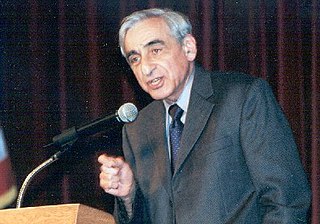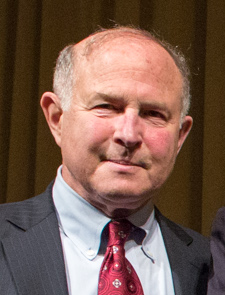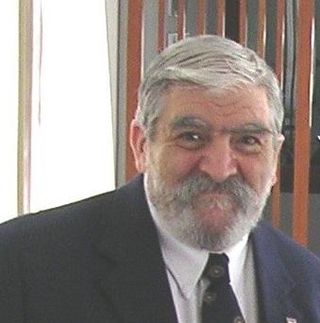
The Declaration of the Rights of Man and of the Citizen, set by France's National Constituent Assembly in 1789, is a human civil rights document from the French Revolution. Inspired by Enlightenment philosophers, the Declaration was a core statement of the values of the French Revolution and had a significant impact on the development of popular conceptions of individual liberty and democracy in Europe and worldwide.

Maoism, officially called Mao Zedong Thought by the Chinese Communist Party (CCP), is a variety of Marxism–Leninism that Mao Zedong developed to realize a socialist revolution in the agricultural, pre-industrial society of the Republic of China and later the People's Republic of China. The philosophical difference between Maoism and traditional Marxism–Leninism is that a united front of progressive forces in class society would lead the revolutionary vanguard in pre-industrial societies rather than communist revolutionaries alone. This theory, in which revolutionary praxis is primary and ideological orthodoxy is secondary, represents urban Marxism–Leninism adapted to pre-industrial China. Later theoreticians expanded on the idea that Mao had adapted Marxism–Leninism to Chinese conditions, arguing that he had in fact updated it fundamentally and that Maoism could be applied universally throughout the world. This ideology is often referred to as Marxism–Leninism–Maoism to distinguish it from the original ideas of Mao.

John Witherspoon was a Scottish-American Presbyterian minister, educator, farmer, slaveholder, and a Founding Father of the United States. Witherspoon embraced the concepts of Scottish common sense realism, and while president of the College of New Jersey became an influential figure in the development of the United States' national character. Politically active, Witherspoon was a delegate from New Jersey to the Second Continental Congress and a signatory to the July 4, 1776, Declaration of Independence. He was the only active clergyman and the only college president to sign the Declaration. Later, he signed the Articles of Confederation and supported ratification of the Constitution of the United States.

Daniel Bell was an American sociologist, writer, editor, and professor at Harvard University, best known for his contributions to the study of post-industrialism. He has been described as "one of the leading American intellectuals of the postwar era". His three best known works are The End of Ideology, The Coming of Post-Industrial Society, and The Cultural Contradictions of Capitalism.

The Founding Fathers of the United States, commonly referred to simply as the Founding Fathers, were a group of late 18th century American revolutionary leaders who united the Thirteen Colonies, oversaw the War of Independence from Great Britain, established the United States, and crafted a framework of government for the new nation.

Michael Laban Walzer is an American political theorist and public intellectual. A professor emeritus at the Institute for Advanced Study (IAS) in Princeton, New Jersey, he is editor emeritus of Dissent, an intellectual magazine that he has been affiliated with since his years as an undergraduate at Brandeis University. He has written books and essays on a wide range of topics—many in political ethics—including just and unjust wars, nationalism, ethnicity, Zionism, economic justice, social criticism, radicalism, tolerance, and political obligation. He is also a contributing editor to The New Republic. To date, he has written 27 books and published over 300 articles, essays, and book reviews in Dissent, The New Republic, The New York Review of Books, The New Yorker, The New York Times, Harpers, and many philosophical and political science journals.

The American Enlightenment was a period of intellectual and philosophical fervor in the thirteen American colonies in the 18th to 19th century, which led to the American Revolution and the creation of the United States of America. The American Enlightenment was influenced by the 17th- and 18th-century Age of Enlightenment in Europe and native American philosophy. According to James MacGregor Burns, the spirit of the American Enlightenment was to give Enlightenment ideals a practical, useful form in the life of the nation and its people.

Jack Norman Rakove is an American historian, author, and professor at Stanford University. He is a Pulitzer Prize winner.

Gordon Stewart Wood is an American historian and professor at Brown University. He is a recipient of the 1993 Pulitzer Prize for History for The Radicalism of the American Revolution (1992). His book The Creation of the American Republic, 1776–1787 (1969) won the 1970 Bancroft Prize. In 2010, he was awarded the National Humanities Medal by President Barack Obama.
Marxism is a political philosophy and method of socioeconomic analysis that uses a materialist interpretation of historical development, better known as historical materialism, to understand class relations and social conflict and a dialectical perspective to view social transformation. It originates from the works of 19th-century German philosophers Karl Marx and Friedrich Engels. As Marxism has developed over time into various branches and schools of thought, no single, definitive Marxist theory exists. Marxism has had a profound impact in shaping the modern world, with various left-wing and far-left political movements taking inspiration from it in varying local contexts.
Moral economy refers to economic activities viewed through a moral, not just a material, lens. The definition of moral economy is constantly revisited depending on its usage in differing social, economic, ecological, and geographic situations and times. The concept was developed in 1971 by the British Marxist social historian and political activist E. P. Thompson in his essay, "The Moral Economy of the English Crowd in the Eighteenth Century", to describe and analyze a specific class struggle in a specific era, from the perspective of the poorest citizens—the "crowd".

Robert Peter George is an American legal scholar, political philosopher, and public intellectual who serves as the sixth McCormick Professor of Jurisprudence and director of the James Madison Program in American Ideals and Institutions at Princeton University. He lectures on constitutional interpretation, civil liberties, philosophy of law, and political philosophy.

Daniel Nicholas Robinson was an American psychologist who was a professor of psychology at Georgetown University and later in his life became a fellow of the faculty of philosophy at Oxford University.
Jonathan Irvine Israel is a British historian specialising in Dutch history, the Age of Enlightenment, Spinoza's Philosophy and European Jews. Israel was appointed as Andrew W. Mellon Professor in the School of Historical Studies at the Institute for Advanced Study, Princeton, New Jersey, in January 2001 and retired in July 2016. He was previously Professor of Dutch History and Institutions at the University College London.

Allen Carl Guelzo is an American historian who serves as the Thomas W. Smith Distinguished Research Scholar and Director of the Initiative on Politics and Statesmanship in the James Madison Program at Princeton University. He formerly was a professor of History at Gettysburg College.

American philosophy is the activity, corpus, and tradition of philosophers affiliated with the United States. The Internet Encyclopedia of Philosophy notes that while it lacks a "core of defining features, American Philosophy can nevertheless be seen as both reflecting and shaping collective American identity over the history of the nation". The philosophy of the Founding Fathers of the United States is largely seen as an extension of the European Enlightenment. A small number of philosophies are known as American in origin, namely pragmatism and transcendentalism, with their most prominent proponents being the philosophers William James and Ralph Waldo Emerson respectively.
Ethical socialism is a political philosophy that appeals to socialism on ethical and moral grounds as opposed to consumeristic, economic, and egoistic grounds. It emphasizes the need for a morally conscious economy based upon the principles of altruism, cooperation, and social justice while opposing possessive individualism.

Utopian socialism is the term often used to describe the first current of modern socialism and socialist thought as exemplified by the work of Henri de Saint-Simon, Charles Fourier, Étienne Cabet, and Robert Owen. Utopian socialism is often described as the presentation of visions and outlines for imaginary or futuristic ideal societies, with positive ideals being the main reason for moving society in such a direction. Later socialists and critics of utopian socialism viewed utopian socialism as not being grounded in actual material conditions of existing society. These visions of ideal societies competed with revolutionary and social democratic movements.

Matthew Desmond is a sociologist and the Maurice P. During Professor of Sociology at Princeton University, where he is also the principal investigator of the Eviction Lab. Desmond was elected to the American Philosophical Society in 2022.
Traditionalist conservatism in the United States is a political, social philosophy and variant of conservatism based on the philosophy and writings of Aristotle and Edmund Burke.














